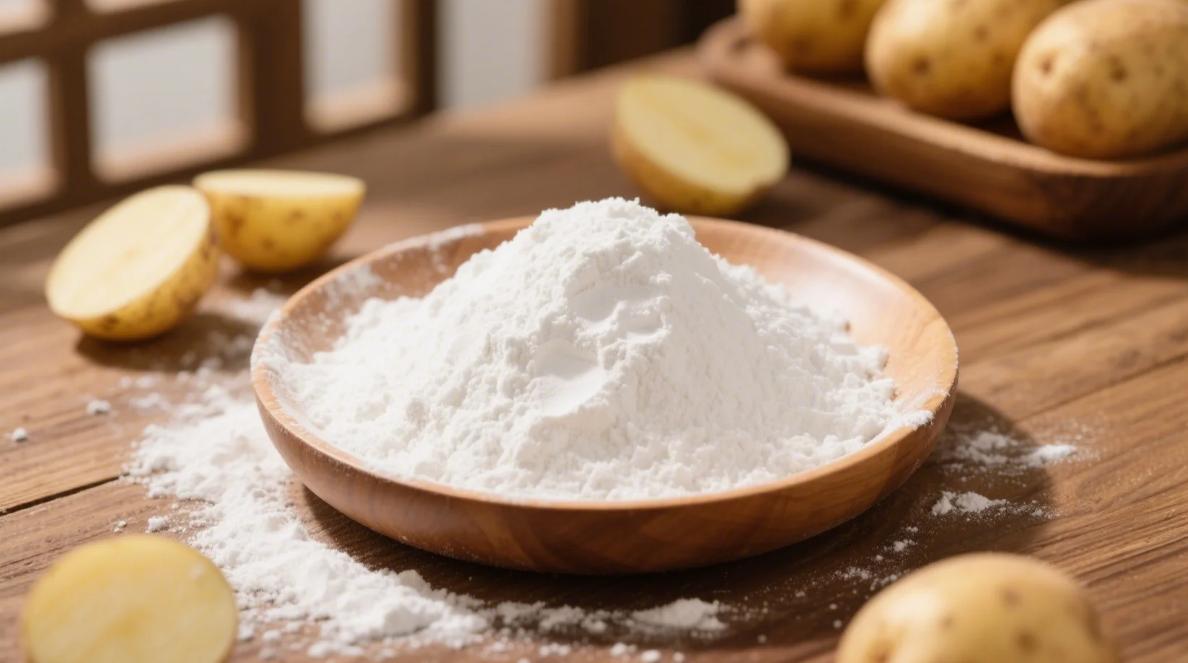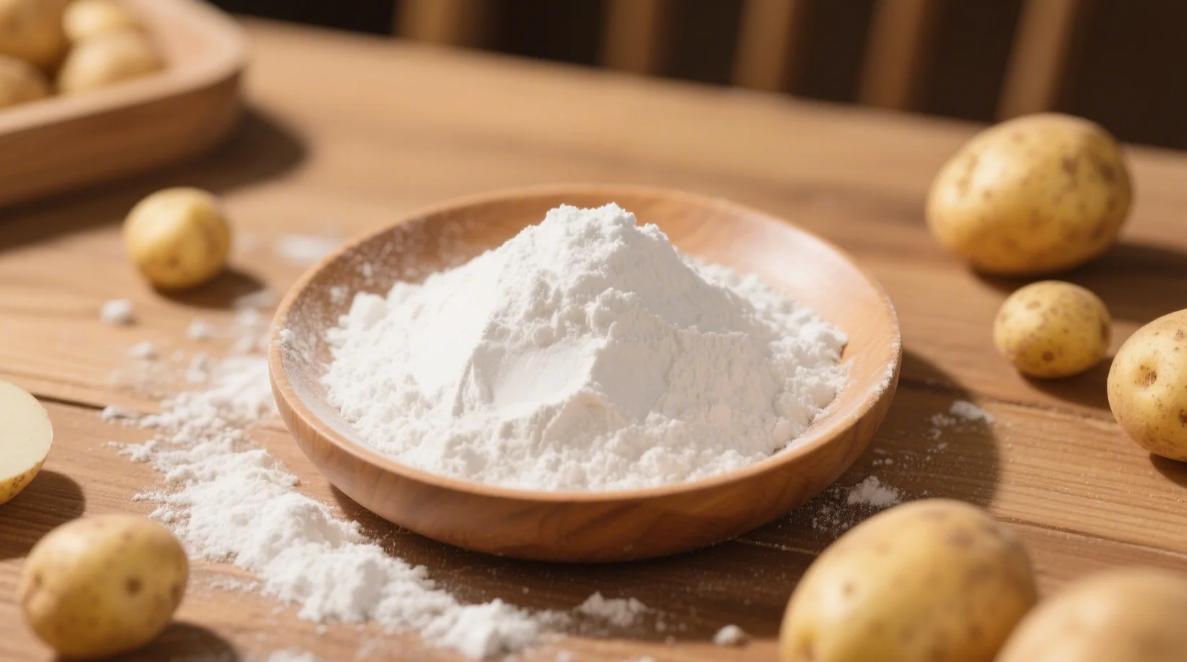1. Is Organic Potato Starch Healthy?
Organic potato starch powder is a nutritional powerhouse with unique advantages for modern diets. Derived from non-GMO potatoes through a water-based extraction process, it retains resistant starch—a type of dietary fiber that resists digestion in the small intestine and feeds beneficial gut bacteria. Clinical studies show that resistant starch:
- Boosts Gut Health: Increases short-chain fatty acids (SCFAs) like butyrate, which strengthen the gut lining and reduce inflammation.
- Supports Metabolism: Improves insulin sensitivity and lowers LDL cholesterol by binding to bile acids.
- Enhances Satiety: Slows digestion, helping curb overeating.
Certified organic potato starch avoids synthetic pesticides and aligns with regenerative farming practices, making it a sustainable choice for eco-conscious consumers.

2. Potato Starch vs. Cornstarch: Which Is Healthier?
While both are gluten-free thickeners, organic potato starch outperforms cornstarch in key areas:
| Attribute | Organic Potato Starch | Cornstarch |
|---|---|---|
| Resistant Starch | 60% resistant starch (supports gut health) | 0% resistant starch |
| Glycemic Impact | Lowers post-meal blood sugar spikes | Neutral; no direct metabolic benefits |
| Heat Stability | Tolerates high temperatures without breaking down | Thickens at lower temps but breaks down under prolonged heat |
| Texture | Creates glossy, smooth sauces and crispy coatings | Can leave a chalky texture |
Verdict: Potato starch is the healthier choice for gut-friendly, diabetic-conscious cooking.
3. Does Potato Starch Spike Blood Sugar?
No—potato starch is diabetic-friendly. Its resistant starch content bypasses digestion, causing minimal impact on blood glucose levels. Key findings:
- Clinical Evidence: A 2024 study showed replacing 30% of dietary carbs with potato starch reduced fasting glucose by 12% in prediabetic adults.
- Low Glycemic Index (GI): With a GI of 7 (vs. sucrose’s 65), it’s ideal for managing diabetes or metabolic syndrome.
Caveat: Overconsumption (>50g/day) may cause bloating, but moderate use (1-2 tbsp per serving) is safe.
4. Potato Starch vs. Potato Flour: What’s the Difference?
These two products are often confused but serve distinct purposes:
| Attribute | Organic Potato Starch | Potato Flour |
|---|---|---|
| Production | Extracted starch from crushed potatoes | Dehydrated, ground whole potatoes |
| Texture | Fine, neutral powder | Coarser texture with earthy flavor |
| Nutrition | Pure resistant starch (low protein/fiber) | Higher in fiber, protein, and potassium |
| Culinary Use | Thickening sauces, gluten-free baking | Adds moisture to breads and cookies |
Key Tip: Never substitute 1:1—potato flour’s strong flavor and binding properties require recipe adjustments.
5. Why Choose Organic Potato Starch Powder?
- Clean-Label Versatility: Ideal for thickening soups, crisping fried foods, and stabilizing gluten-free baked goods.
- Ethical Sourcing: Brands like Bob’s Red Mill use solar-dried production, reducing carbon footprints by 40%.
- Future-Ready Nutrition: Emerging research explores its role in bioplastics and vaccine stabilization.
The Modern Pantry Essential

Organic potato starch powder bridges culinary innovation and wellness. With its gut-nourishing resistant starch, blood sugar-friendly profile, and unmatched heat stability, it’s revolutionizing kitchens worldwide. Whether you’re crafting silky gravies, crispy tempura, or moist gluten-free cakes, this versatile starch delivers health and flavor without compromise.